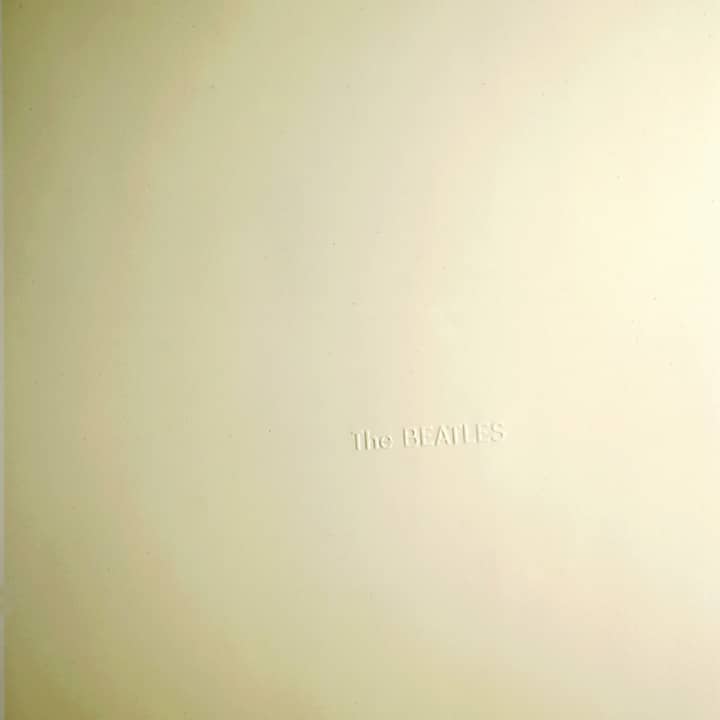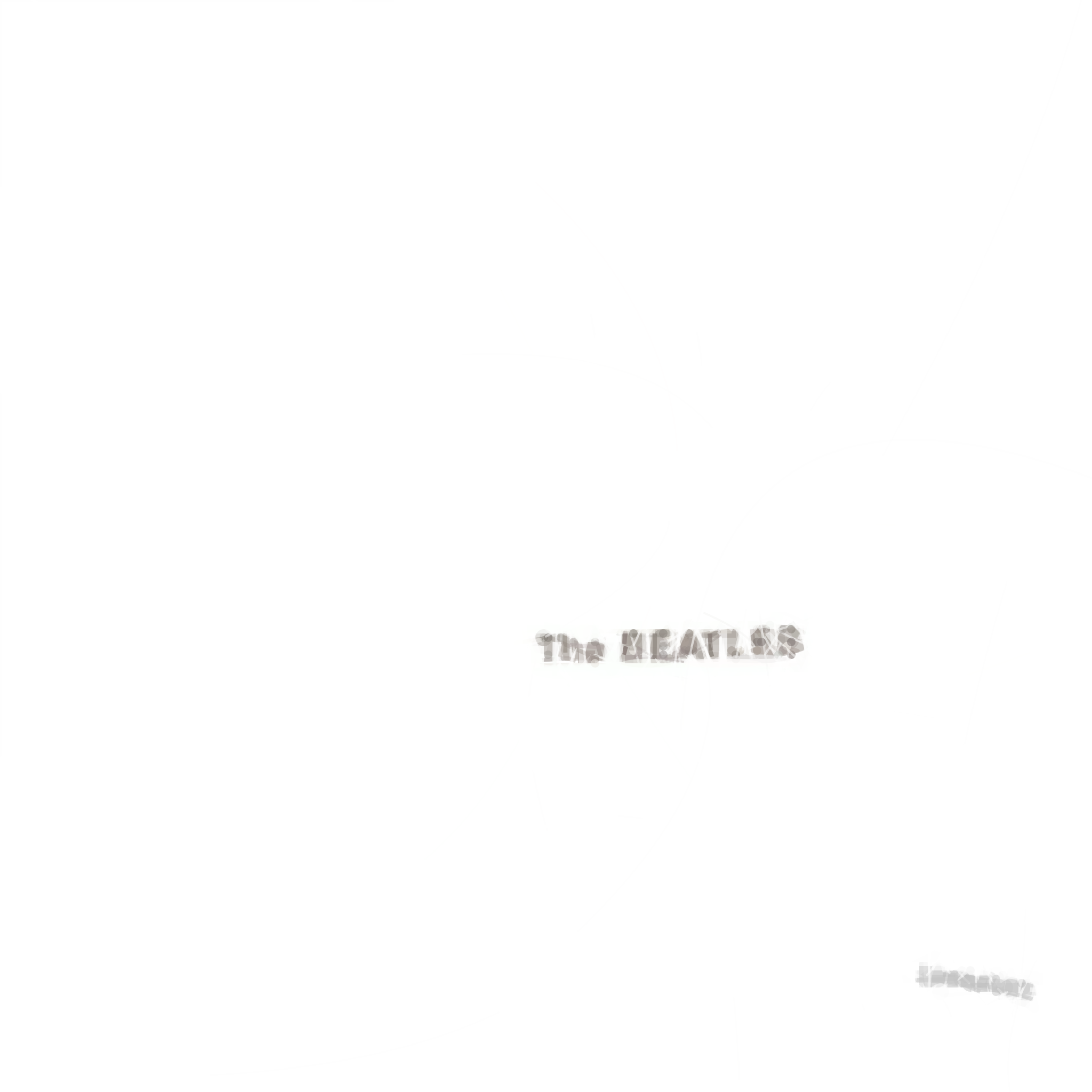Good Night is the final track on the Beatles’ double album known as the White Album. It was written by John Lennon but sung by Ringo Starr. Lennon later explained that it was a lullaby written for his then five-year-old son, Julian. It is a rather beautiful, tender and comforting song, at odds with most of the rest of the album and, clearly intentionally, in very stark contrast to the immediately preceding track, Revolution 9.
Ringo is the only Beatle to perform on the recording, with all the other instrumentation provided by a small choir and orchestra, scored by George Martin. The arrangement is particularly ornate and unusually flowery for a Beatles record, and it is reminiscent, likely deliberately, of the sound of early Disney movies such as Snow White and the Seven Dwarfs. Lennon had requested this sound, although he later described it as “possibly overlush”.
‘Good Night’, the tender closing song on the White Album, was written by John Lennon as a lullaby for his son Julian, and sung by Ringo Starr.
 Continue reading on Beatles Bible →
Continue reading on Beatles Bible →The idea of the song as a lullaby for Julian is touching but sad as, although he described it that way in a 1980 interview just before he died, John seems never to have told Julian about it directly, and they never really established a strong father-son relationship.
John had been a very remote father and had not really connected with Julian. He had barely known his own father and had, for most of his life, only a tenuous relationship with his mother before her untimely death. His aunt Mimi who raised him was not warm, and could be very harsh, and his uncle George (her husband) had also died suddenly when John was a child, so he did not have role models for loving parental relationships.
John had only married his first wife, Cynthia, when she was pregnant with Julian and although she says it was a loving relationship at first (they had already been dating for several years), it seems to have been rather one-sided marriage. Lennon was a prickly, often insecure and sometimes cruel character, while Cynthia seems to have been rather forgiving and unassertive. The couple were kept apart due to the Beatles all-consuming work schedule and the initial suggestion that John ought to keep his marriage and child secret (the secret was swiftly uncovered by the press when Julian was christened). Even when the family were together, John had struggled to be an involved and caring father as he expressed in this excerpt from a letter to Cynthia:
I think it’s been a slow process my feeling like a real father! I spend hours in dressing rooms and things thinking about the times I’ve wasted not being with him – and playing with him – you know I keep thinking of those stupid bastard times when I keep reading bloody newspapers and other shit whilst he’s in the room with me and I’ve decided that it’s ALL WRONG! … I’m bringing myself down thinking what a thoughtless bastard I seem to be … I really feel like crying – it’s stupid – and I’m choking up now as I’m writing
However the situation seems not to have improved much, despite these feelings, Cynthia explained:
This particular letter evokes mixed feelings in me now. I know John loved and missed us and that he meant every word he wrote. But he didn’t change. There were periods when he tried harder with Julian, spent more time with him and got to know him better, but he was too preoccupied with other things to devote much energy to the small son who longed for his attention.
The marriage broke up in May 1968 after Cynthia returned from an overseas holiday (that John had encouraged her to take without him) to find Yoko Ono staying with him in what had been the family home. The couple were thus going through a sudden and difficult split at the time the Good Night was recorded (McCartney’s song Hey Jude, recorded just a few days later, famously originated with his concern for Julian during this period).
Cynthia later wrote:
On what was to be one of the Beatles’ last albums, called The Beatles but forever after known as the ‘White Album’, was a little lullaby John had written for Julian. The album came out just before our divorce and I knew the song was there; I had heard it when John composed it and had loved it. But I was disappointed that John had given it to Ringo to sing on the album and for a long time after our split I couldn’t bring myself to listen to it, or play it to Julian. Eventually I did, though, telling him his Dad had written the song for him, in the hope that it might provide him with some comfort.
Given the personal nature of the subject matter, it is not clear why Lennon decided to give the song to Ringo. The Beatles had developed a longstanding policy of having all four Beatles sing on each album, but Ringo had already recorded Don’t Pass Me By for the White Album (that said it is a double album, so perhaps two Ringo songs were needed). It is clear, however, that they did intend it to be presented a lullaby, sung as if to children at bedtime. This was reflected in spoken word sections recorded on unused takes and listed in Mark Lewisohn’s Complete Beatles Recording Sessions:
“Come on children! It’s time to toddle off to bed. We’ve had a lovely day at the park and now it’s time for sleep.”
“Put all those toys away. Yes, Daddy will sing a song for you!”
“Cover yourself up, Charlie. Pull those covers up and off you go to dreamland!”
Previously the Beatles had deliberately chosen Ringo to sing Yellow Submarine because it was similarly aimed at children with Paul explaining, “Ringo being so good with children – a knockabout uncle type – it might not be a bad idea for him to have a children’s song”, so perhaps the motivation was similar with Good Night*.
Geoff Emerick wrote:
John had decided to have Ringo sing the lead vocal. We were all totally caught off guard by that because we’d already recorded what we presumed was going to be the sole Ringo song on the album. It’s hard to imagine that John actually thought Ringo could do a better job on it than he could – he knew as well as anyone that Ringo was no singer. Perhaps it was that he was embarrassed at singing such a gentle lullaby – maybe it wasn’t macho enough for him – or perhaps he made the decision to keep Ringo happy** because he sensed some disquiet in the usually placid drummer.
John had made a demo for Ringo to take home and practice to, and it was played back a couple of times that night. It’s a shame this particular tape has been lost to the world and that nobody will ever hear the gorgeous way John sang his tender little song. In comparison I really don’t think Ringo did the song justice. Nevertheless it was one of the best vocals he ever did. During the rehearsals and run-throughs, John and Yoko stayed up in the control room while the other three Beatles remained down in the studio with George Martin who played piano while Paul and George Harrison coached their drummer on phrasing and pitching. That created a unity that had rarely been present in these sessions***.
Certainly, Ringo does a great job; it’s quite a demanding song toward the top of his range, but he really conveys the unironic warmth the song needs to work in its context, and it is a very good vocal. Ringo really does have a reassuring voice, and went on to narrate children’s film (The Point****) and TV (Thomas The Tank Engine) after the Beatles broke up.
It is a shame that Lennon’s demo vocal, apparently recorded to help Ringo rehearse the song, has never been found. According to McCartney:
… it was fabulous to hear him do it, he sang it great. We heard him sing it in order to teach it to Ringo and he sang it very tenderly. John rarely showed his tender side, but my key memories of John are when he was tender, that’s what has remained with me
Lennon, who never liked the sound of his voice (though he clearly convinced Emerick and McCartney) may have felt he couldn’t achieve the required calm sincerity. To be much more speculative, he may have had a deeper insecurity that he was not someone who could offer genuine comfort to a child, that he didn’t have that colour in his emotional palette.
*
McCartney has suggested that Lennon felt that the tender style of the song “might not be good for his image”. This is possibly an offhand remark, and it doesn’t really seem fair since Lennon, by this stage, was content to write and sing vulnerable or tender lyrics (e.g., Julia). It also seems possible, that McCartney’s view of Lennon’s tough guy image, had not fully taken on board his increasing vulnerability and openness. Leading up to the recording of the White Album, Lennon and McCartney had been developing an increasingly intimate and emotional bond, but the deeper expectations they now had of one another were somehow mismatched. It is argued in the excellent One Sweet Dream podcast by Diana Erickson that this ultimately led to the breakdown of their partnership and the band, and before that to the remarkable coincidence of their new relationships and marriages in 1968.
**
Both Geoff Emerick and Ringo were to quit the White Album sessions later due to the tensions and arguments among the band members and production team.
***
The timeline goes something like this Good Night was written likely after the Beatles returned from India but before John and Cynthia effectively split in late May 1968 (many songs on the White Album were written at the Rishikesh retreat, and demoed after the Beatles return at George’s house in Esher. These recordings do not include a demo of Good Night). Revolution 9 was recorded on 30th May and that recording involved Yoko Ono, who would attend recording sessions with Lennon from that time onward. Ono’s presence in the studio was at least one factor in the increasing tensions among the band members which then transmitted itself to the production team. Geoff Emerick quit the White Album sessions and declined to work with the Beatles from mid-July (16th; he was eventually persuaded to rejoin the team for the Abbey Road album). Ringo left the band (temporarily as it turned out) in mid-August (22nd).
****
I think I remember watching The Point! when it came out (I would have been about 4 or 5) and I think I remember being told that it had something (I am not sure what)to do with the Beatles and that was why it was important/good. Assuming it’s true, it’s one of my earliest memories that involves the Beatles, although I am not sure whether the version I saw was narrated by Ringo.

